![]()
By Rob Harris
RTE’s 6.1 News, the prime TV news show of Ireland’s public service broadcaster, featured a special report on the Ukrainian crisis on the 17th April, by Carole Coleman, one of the broadcaster’s principle reporters covering foreign news stories.
Transcript
During the report in question, ‘Russia and the US accuse each other of exaggeration’, Coleman narrates:
“The air is thick with warnings and accusations. Not just on the ground in Ukraine, but in Washington, Kiev, Moscow and, by extension, the mass media. It’s called ‘The Propaganda War’, and Dmitri Tsiskarashvili from Trinity College Dublin, thinks Vladimir Putin is winning it.” […]
“The most effective propaganda is disinformation. Take Russia’s claim that uniformed men in Crimea were not its troops. Today Vladimir Putin admitted he had special units in Crimea. The US paints Russia as a power-hungry player bent on destabilisation, an accusation repeated so many times that NATO is stepping up its presence in the Baltic region.” [Cue footage of a Russia Today interviewer asking how NATO is advocating a peaceful solution whilst increasing its troop presence]
“So what is real in the fog of war and what is bluster?”
Tsiskarashvili: “During [the] Soviet time, it was straightforward naïve and stupid propaganda. But now I think the Russians became very [much] more skilful, more educated because they [are] learning from the United States, how to do a proper propaganda [campaign], especially during a time of war or some kind of financial crisis.”
Coleman’s narration continues:
“The mainstream media has adopted its own biases too. Last winter we described those on Maidan [Square] in Kiev as ‘pro-European protestors’. Now we are more likely to call the pro-Russians in the East, ‘militants’ and ‘separatists’.”
“As in all wars, the words are almost as dangerous as the weapons.”
Media Bias?
Carole Coleman’s report is remarkable for equating, with respect to the Ukrainian crisis, the propaganda coming from the Kremlin, with similar content broadly emanating from United States.
Coleman takes issue with the word ‘militant’, as used by the media. To do so suggests she believes it is a misnomer, but it is surely an uncontroversial use of English, to describe well-armed groups as such.
As a parallel, Coleman criticised the use of the words ‘pro-European protestors’, used by the international media to describe those protesters who took to the streets of Kiev late last year, after the government pulled out of an EU trade deal. The Ukrainian government of the time opted instead for an arrangement with Russia. Whilst many protestors likely opposed the government on a variety of issues, such as corruption, they were nonetheless protestors that favoured closer economic ties with the European Union. Why then would Coleman take issue with such unproblematic terminology?
Whilst presenting the report in seemingly balanced terms, Coleman’s examples are revealing of a pro-Russian sympathy, for she criticised a positive descriptor of one group, and a negative descriptor of their political opponents. Her criticism was surprising, since her colleagues used these terms as well.
An unfortunate relativism
Carole Coleman’s report featured Dr. Dmitri Tsiskarashvili, supposedly an expert on media matters, stating that Russian propaganda had become more sophisticated, more akin to that of the US media.
Whilst few governments do not attempt to influence their media to some extent, the US possesses a level of press freedom that is diametrically opposed to that of the Russian State. Thus, it is an absurdity to present these nations as on a par.
Rather than having expertise in media analysis, Coleman’s source, Dr. Tsiskarashvili, is an assistant professor in Russian Studies at Trinity College Dublin, who, of course, focuses on academically-themed Russian pursuits. His roles include ‘Business Studies and Russian Language Programme Coordinator’.
Likewise, in another report on April 12th, entitled “Unrest grows in east Ukraine”, Coleman interviews Sergei Tarutin, a Russian newspaper editor, who criticised the Ukrainian government for a perceived weakness, and for failure to communicate with its Russian speaking populace. Coleman failed to provide any space for a Ukrainian counterpoint.
A propaganda war of two sides?
In reality, there certainly appears to have been a considerable effort to feed disinformation into the Russian media. A significant amount of this content has been debunked although such information is unlikely to undermine the force of the initial propagandistic stories.
The Russian authorities have long been claiming the government in Kiev is controlled by fascists, and accusations of Ukranian anti-Semitism appear to be coming from Russian govermental sources. Russian Jewish leaders have made similar claims which have been stoutly rejected by Jewish leaders in Ukrane itself.
In early April, a Russian propaganda video came to the international media’s attention, because it inverted reality to an extraordinary extent. The video showed a poorly organised array of Russian fighters defending Russian soil from a fascistic Ukrainian Army invasion! Thus, there is good reason to doubt Dr. Tsiskarashvili’s account of a growing sophistication in Russian propaganda.
John Lough, a Eurasian specialist at the Royal Institute of International Affairs (Chatham House), argued, on RTE’s Drivetime (April 15th), that fear is motivating Russian-Ukrainian separatism:
“Russian propaganda has been carrying a very simple message over recent weeks… you would be astounded at the level of disinformation, and the impression being cultivated by the Russian media, which are successful in those border areas of Ukraine, that a group of people have come to power in Kiev who are predominately fascists, anti-Semites, anti-Russian individuals, who are going to discriminate against Russian speakers in Ukraine. They used this argument in Crimea, and it’s now being transported to the South-East regions of Ukraine… to get the population frightened, and fearful of what might happen next in Ukraine. You’ve got 40,000 troops on the border, you’ve got indications Russia, publicly, is very concerned about the security situation, so I think in those circumstances its not hard to find supporters for a particular cause, which is to say it’s important to federalise Ukraine…”
Meanwhile, in the face of a resolute and rather combatitive Russian State, many commentators and politicians are pointing to US president Barack Obama’s rather uncertain foreign policy stance over the issue, a view Obama has himself acknowledged to some extent. Thus, it is wholly out of kilter to suggest the US is being as hawkish as Russia, in any fair-minded understanding of the conflict.
Moreover, it is quite absurd for Coleman to blame NATO’s increasing mobilisation in the region on the US’ rhetoric, rather than on Russia’s incursion in the Crimea, and mobilisation at Ukraine’s border.
Conclusion
Whether or not the aims of Russian speaking separatists are legitimate, for in truth few in Western Europe can claim to be particularly knowledgeable on the political climate in Ukraine, it nonetheless seems that a powerful Russian media-orchestrated fear campaign is motivating a desire by these people to separate, or at least distance themselves, from the government in Kiev.
Carole Coleman’s coverage of the Ukrainian crisis presents as subtly pro-Russian, a rather rich irony considering her accusations of Western media bias. Coleman doubles-down on her irony quotient, by using footage from Russia Today, a satellite channel widely known to be a highly successful propaganda arm of the Kremlin.
Coleman has long been noted for possessing stridently anti-American views, and, in this instance, she unjustly equates an evidentially apparent Russian media campaign, with relatively strong rhetoric emanating from the White House. Such a stance seems indicative of a rather odd paranoia of the US, NATO, and the Western media.
Rob Harris contributes articles to several websites on contentious political issues (not to be confused with the popular English novelist (1957-) of the same name). He blogs at eirael.blogspot.com. He lives in Ireland. For all the exclusive blog entries by Rob Harris, go here.



 RSS
RSS

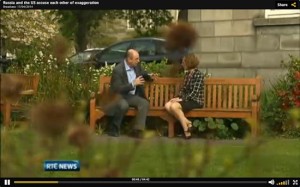
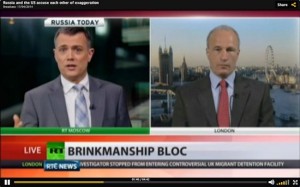
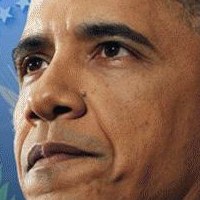
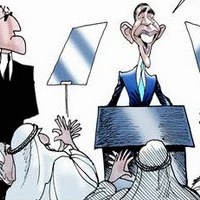

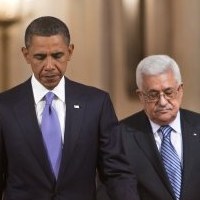
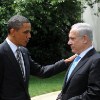




Latest Comments
Hello Mike, Thank you for your positive feedback to the article. I felt there wasn’t too much critical analysis of ...
Thanks for this considered and well constructed article. A follow up article on the manner in which the editorial contro...
THE CLUELESSNESS OF CLAIMING THAT OBAMA'S MIDDLE EAST POLICIES WERE A FAILURE CANNOT BE FURTHER FROM THE TRUTH, WHAT THE...
As long as Obama is the president of the usa do not trust the us government......
Thank you for an good read....